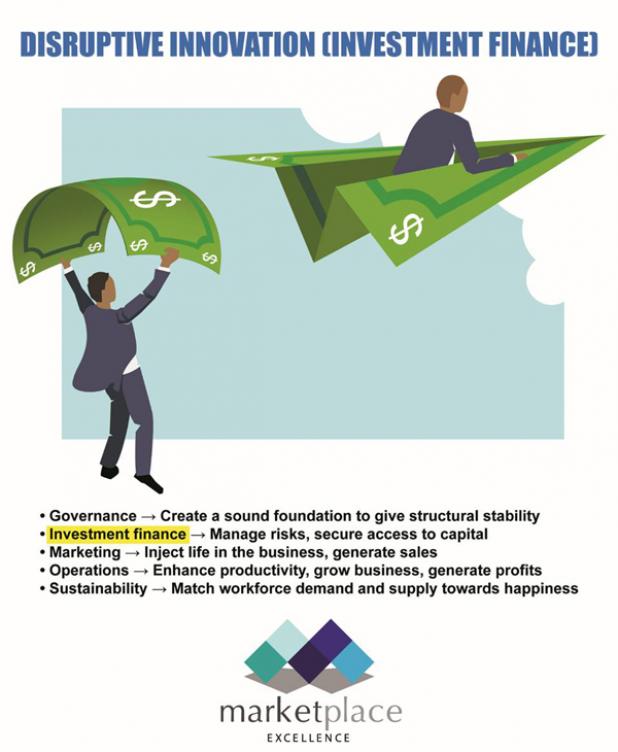
BUSINESS MONDAY: SERIOUS BUSINESS: Disruptive innovation (investment finance)
“Good will come to those who are generous and lend freely, who conduct their affairs with justice.” – Psalm 112:5
Last week we noted that in the same way that the skeleton and muscles provide structural stability for the human body, in business a disruptive innovative Governance system creates a sound foundation to give structural business stability.
Today, we note that the skin, hair, nails, and the immune system provide external and internal protection, respectively, for the human body structure – the skeleton and muscles. In the same way, in business, a disruptive innovative Investment Finance system is needed to protect against the risk of early demise.
Such a system embraces a quick response seed, equity and working capital Fund. This is coupled with professional shepherding advice which secures the investment by the Fund in the startup. These twin components along with the selection of entrepreneurs with DNA of an elephant ideas – ideas with potential for export to the global market – constitute The Shepherding Model. Three well documented systems are available for the implementation of the Model.
This innovation is necessary since, no matter how impeccable the character of a startup entrepreneur, the startup business has only a slim chance of qualifying for a loan from traditional financial institutions because of the lack of savings, hard collateral, cash flow history and specific business experience.
In this dispensation, when a startup is selected, a shepherd is assigned to the entrepreneur. A quantum of seed capital is advanced by the Fund to the startup business, on the advice of the shepherd, who helps to develop the entrepreneur’s business plan and cash flow projections. This seed capital is used to cover payment to the shepherd and other startup expenses. The shepherd may also opt to be paid out of future profits in the same way that a financial investor awaits dividends and a return of capital when the business matures.
The business plan determines the startup equity capital required, including the seed capital which is rolled into the equity, and the startup invites the Fund to invest, in return for which the Fund acquires shares in the startup business. The seed capital is then refunded to the Fund from the equity advanced. An equity agreement is signed between the startup and the Fund in which provision is made for the startup to buy out the shares of the Fund, at market rates, when cash flow permits.
The shepherd encourages the startup to plough initial profits back into the business as an additional layer of security against business failure.
The Fund may also supply working capital on a short-term basis which may be secured by a marketing contract, say, for the sale of goods by the startup.
The Fund may be initially capitalized partially by government incentives to the private sector to mobilize private sector savings to invest in the Fund. These incentives may be in the form of a letter of comfort or a government guarantee of the capital invested in the event that the Fund is unable to repay the investors at the end of the life of the Fund, say, 10 years. Several Funds may be sequentially established depending on the demand from startups.
